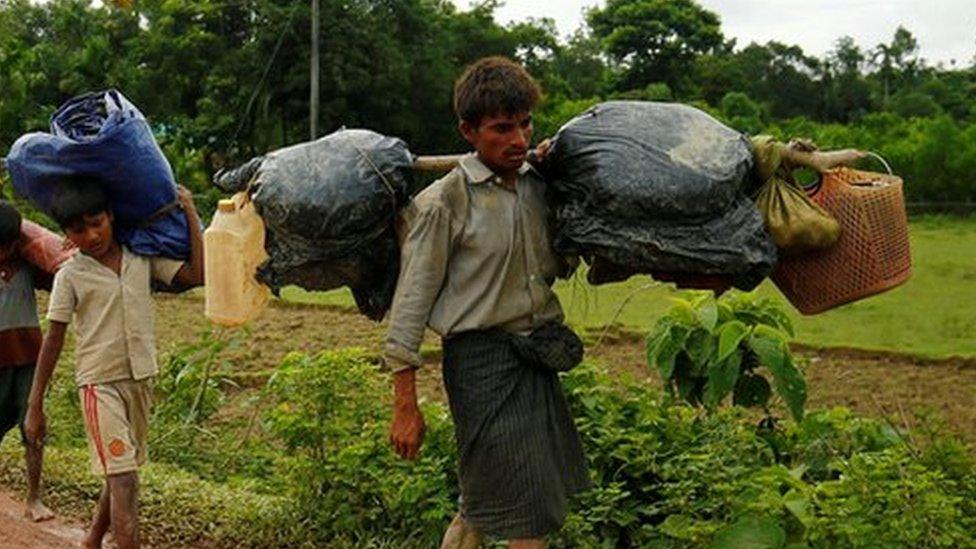Rohingya crisis: Myanmar army admits killings
- Published
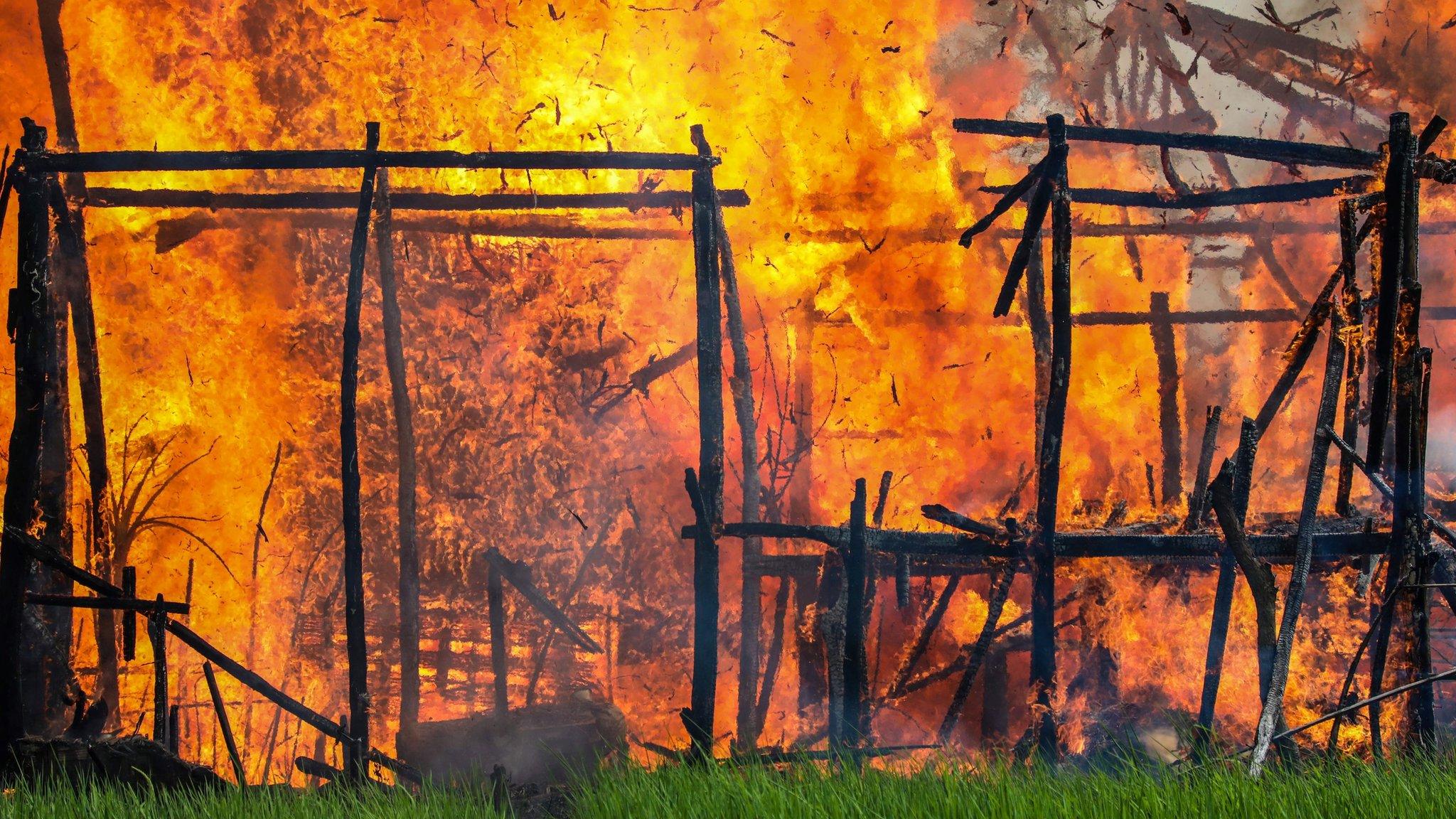
Entire villages were burned during the violence that broke out in August last year
Myanmar's army has admitted for the first time its soldiers were involved in unlawfully killing Rohingya Muslims in recent violence in Rakhine state.
It said an inquiry had found that four members of the security forces were involved in the killing of 10 people in Inn Din village near Maungdaw.
The report said the four had helped villagers carry out a revenge attack on what it called "Bengali terrorists".
Myanmar has been accused of carrying out ethnic cleansing in Rakhine state.
More than 650,000 Rohingya have fled into neighbouring Bangladesh since violence erupted last August, with terrible stories of mass murder, rape and torture.
They accuse the military, backed by local Buddhist mobs, of burning their villages and attacking and killing civilians.
Myanmar's military has denied targeting civilians, and insists it is fighting only Rohingya militants.
Myanmar has refused to allow journalists and external investigators into Rakhine to look into the allegations of abuses.
The military announced last month that it would investigate a grave containing 10 skeletons that had been found near Inn Din.
The results of the investigation, published on the military commander-in-chief's Facebook page, said the massacre took place on 2 September.
"It is true that both the villagers and security forces admitted they killed the 10 Bengali terrorists," it said, using their usual term to refer to Rohingya militants.
"The army will take charge of those who are responsible for the killings and who broke the rules of engagement.
"This incident happened because ethnic Buddhist villagers were threatened and provoked by the terrorists."
Who is burning down Rohingya villages?
This is a rare admission of wrongdoing by the Myanmar military. In November, the military exonerated itself of blame in the recent violence, and flat out denied unlawfully killing any Rohingya people, burning villages, raping women and girls or stealing possessions.
Despite all the evidence of atrocities in Rakhine, until now the only mass grave the Myanmar authorities have found was blamed on Rohingya militants and contained the bodies of what they said were 28 Hindu villagers.
There has been speculation that the detention in December of two Reuters reporters came after they received information about the massacre at Inn Din.
UN human rights investigator Yanghee Lee had been due to visit Myanmar this month but was banned in December after the government accused her of not being "impartial and objective".
She said the decision to block her suggested "something terribly awful" was happening in Rakhine.
You can read more on this story:
- Published18 December 2017
- Published23 January 2020
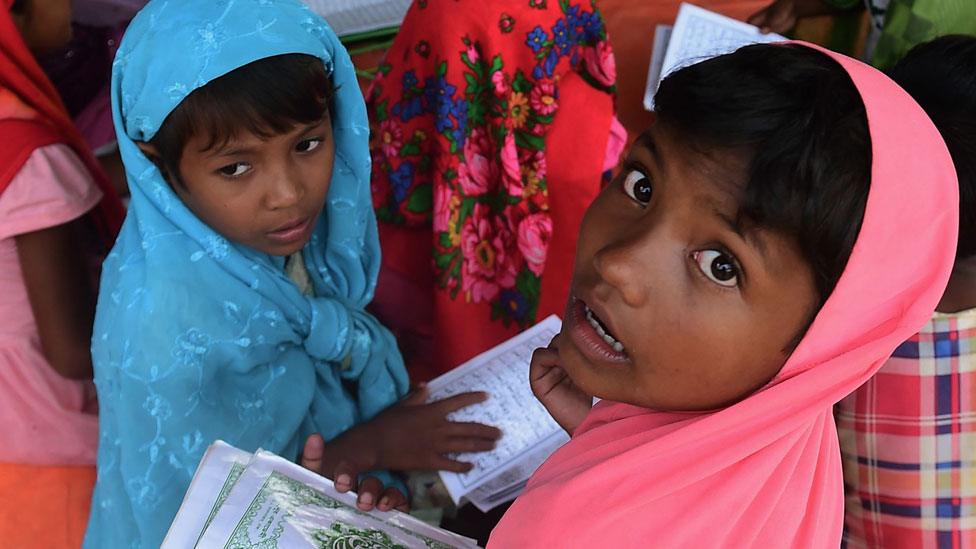
- Published11 October 2017
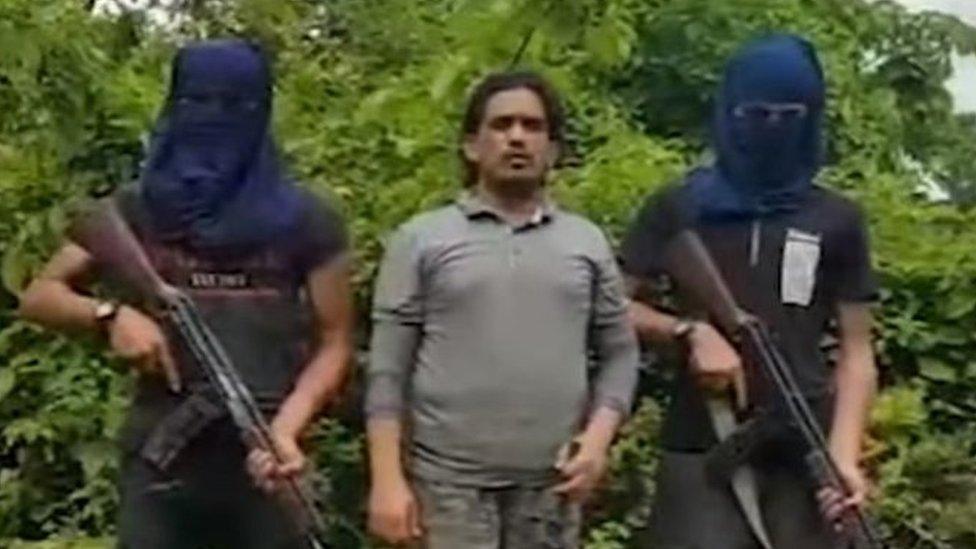
- Published6 September 2017
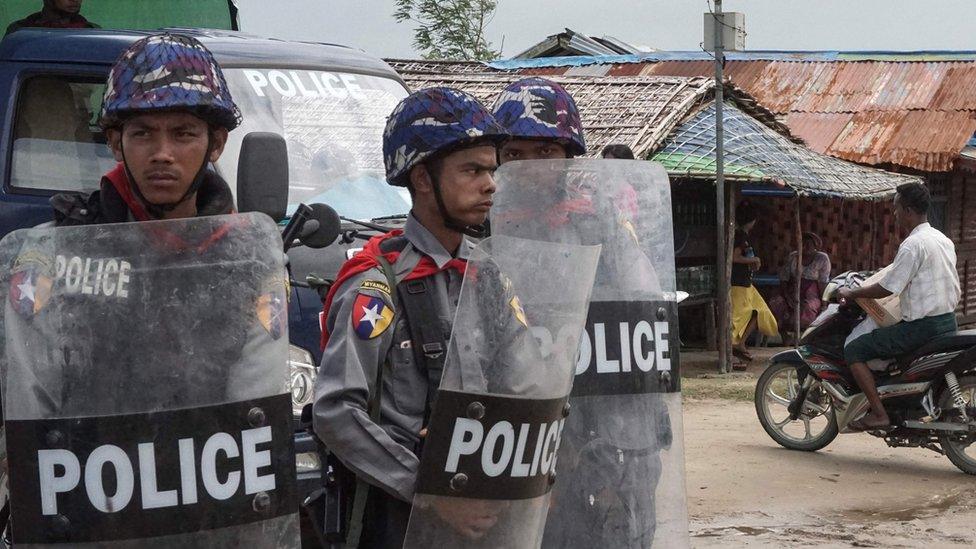
- Published25 September 2017
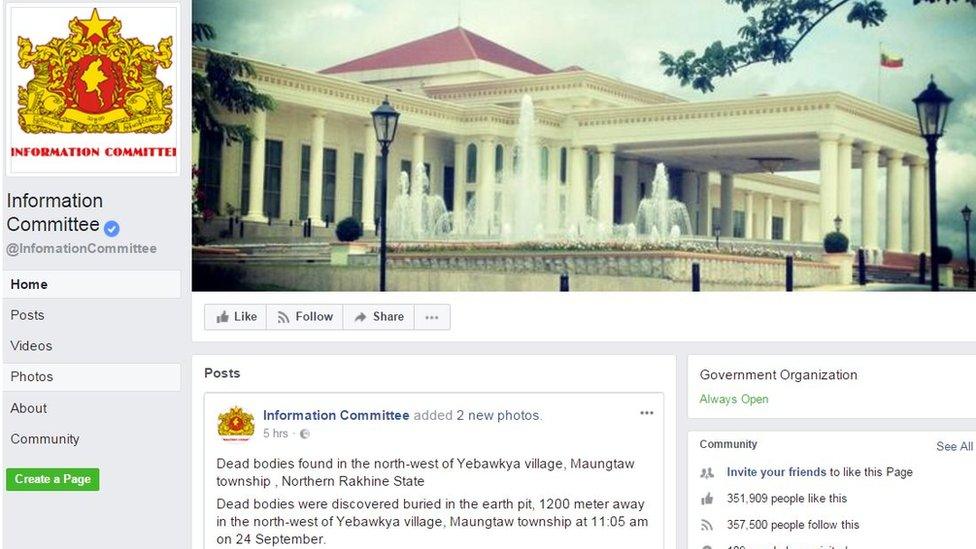
- Published5 December 2017
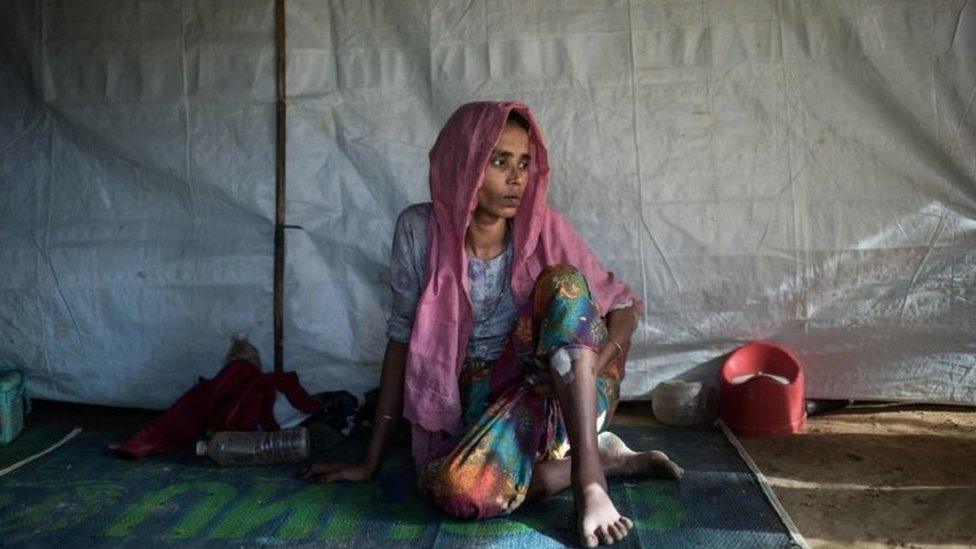
- Published6 September 2017
